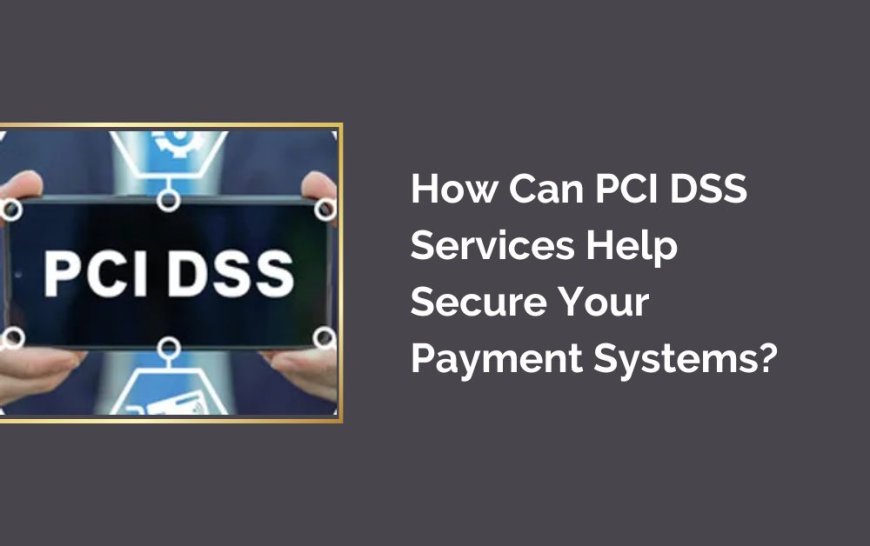How Can PCI DSS Services Help Secure Your Payment Systems?

In the realm of digital transactions, ensuring the security of payment systems is paramount for businesses. Payment Card Industry Data Security Standard (PCI DSS) services play a crucial role in safeguarding sensitive cardholder information and maintaining trust with customers. Here’s how implementing PCI DSS services can enhance the security of your payment systems and protect against cyber threats.
Understanding PCI DSS
What is PCI DSS?
PCI DSS stands for Payment Card Industry Data Security Standard. It is a set of security standards designed to protect cardholder data during credit card transactions. Developed by major credit card companies, PCI DSS compliance is mandatory for businesses that handle credit card payments.
The Importance of Payment Security
Securing payment systems is critical to prevent data breaches, fraud, and unauthorized access to sensitive financial information. Compliance with PCI DSS helps businesses build a secure environment for processing, storing, and transmitting cardholder data, reducing the risk of security incidents.
Benefits of PCI DSS Services

Enhanced Data Security
PCI DSS services provide guidelines and requirements for securing payment systems. This includes encrypting cardholder data, maintaining secure networks and systems, implementing strong access control measures, and regularly monitoring and testing networks. By adhering to these standards, businesses strengthen their defenses against cyber threats.
Compliance with Industry Standards
Achieving PCI DSS compliance demonstrates a commitment to protecting customer data and meeting industry regulations. Compliance helps businesses build trust with customers and partners, as it signifies adherence to best practices in payment security established by the payment card industry.
Reduction of Financial Risks
Non-compliance with PCI DSS can result in hefty fines, legal liabilities, and reputational damage in case of data breaches. PCI DSS services help businesses mitigate these risks by ensuring that security measures are in place to protect sensitive information and comply with regulatory requirements.
Implementing PCI DSS Services
Assessment and Gap Analysis
The process begins with a comprehensive assessment and gap analysis of existing security measures against PCI DSS requirements. This helps identify areas that need improvement and ensures alignment with compliance standards.
Remediation and Implementation
Based on assessment findings, businesses implement necessary remediation measures to address gaps and vulnerabilities. This may include updating security policies, enhancing network security controls, and training staff on security best practices.
Continuous Monitoring and Maintenance
PCI DSS compliance is an ongoing process that requires continuous monitoring and maintenance. Businesses regularly assess their security posture, conduct vulnerability scans, and perform audits to ensure ongoing compliance and readiness for changes in security threats and regulations.
Choosing PCI DSS Service Providers
Expertise and Experience
Partnering with PCI DSS service providers brings specialized expertise and experience in payment security. Certified professionals understand the complexities of PCI DSS requirements and provide tailored solutions to meet your business needs.
Customized Solutions
Service providers offer customized solutions based on the size, scope, and industry-specific requirements of your business. They guide you through the compliance process, from initial assessment to certification, and provide ongoing support to maintain compliance over time.
Conclusion
Investing in PCI DSS services is not just a regulatory obligation but a strategic decision to protect your business and customers from evolving cyber threats. By implementing PCI DSS standards, businesses strengthen their payment security, build trust with stakeholders, and mitigate financial and reputational risks associated with data breaches. Choose a reputable PCI DSS service provider to navigate the complexities of compliance effectively and ensure robust protection of sensitive cardholder information in today’s digital economy.
Note:- To read more articles visit on news.bangboxonline.
What's Your Reaction?

























